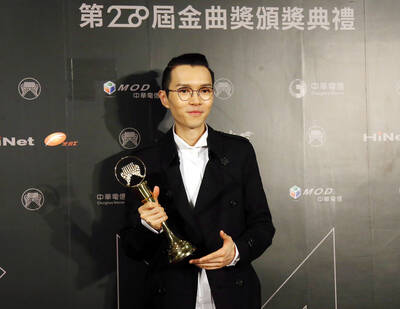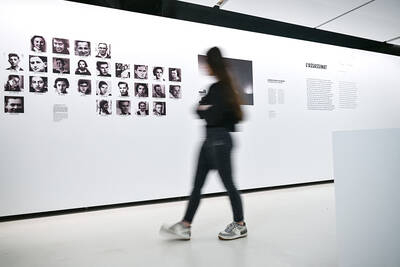One morning Mark woke up and the sun was shining through his bedroom window.
"That's strange," he thought. "Kathleen usually wakes me up by now." He got dressed quickly and went to find Kathleen. Mark heard her before he saw her. The sound of noisy sneezing and coughing was coming from Kathleen's room.
Mark knocked lightly on her door. "Are you OK?" he asked.
"Fine! I'm just fine! I was just about to come wake you up," Kathleen answered.
Mark walked into the room and saw Kathleen was still in bed. She was trying to sit up. She lifted her head off the pillow a little bit, but then she laid back down.
"I'm just a little bit dizzy," she said to Mark, right before she started coughing again.
"Wow, Kathleen, you're really sick. I need to take you to the hospital," said Mark, looking worried.
"I'm not sick!" Kathleen shouted, her voice scratchy from all the coughing. "I never get sick! I'm just a little tired this morning, that's all."
"No, you need to go see a doctor," Mark said as he lifted her out of bed, blankets and all, and set her down on his head. "Let's go," he said.
"But the doctor will make me take medicine!" Kathleen cried.
"So? I thought you weren't afraid of anything!" Mark answered.
(Kayleen Hartman, staff writer)
某天早上馬克醒來,陽光從他臥室的窗戶照進來。
「奇怪了,」他心想:「通常這個時候凱薩琳早就叫我起床了。」他趕緊穿衣,找凱薩琳。馬克還沒看到她,就先聽到了她的聲音。凱薩琳的房裡傳來打噴涕與咳嗽的聲音。
馬克輕輕敲她的門。他問說:「妳還好吧?」
凱薩琳回答:「很好!我很好!我正要去叫你起床。」
馬克走進她的房間,看到凱薩琳還躺在床上。她試著起身,稍微將頭抬離枕頭,但是又躺下了。
她對馬克說:「我只是有一點頭暈。」然後又開始咳嗽。
馬克有點擔心,他說:「哇!凱薩琳妳真的生病了。我必須帶妳去醫院。」
凱薩琳大吼:「我沒有生病!」她的聲音因咳嗽而沙啞。「我絕對不會生病!我今天早上只是有點累,這樣而已。」
馬克說:「不,你必須去看醫生。」他一邊將凱薩琳拉離床舖與毛毯,把她放在自己頭上。他說:「走吧!」
凱薩琳大叫:「可是醫生會叫我吃藥!」
馬克回答:「那又怎樣?我還以為妳天不怕地不怕呢!」 (翻譯:賴美君)

A ‘Dutch angle’ is a classic camera technique that has been used in filmmaking since the 1920s, when it was introduced to Hollywood by German Expressionists. Why is it called the Dutch angle if it’s actually German? In fact, it has no __1__ to the Netherlands. The term “Dutch” is widely believed to be a misinterpretation of “Deutsch,” which means German in the German language. In any event, the name stuck, and the Dutch angle remains a popular cinematic tool to this day. This technique involves tilting the camera on its x-axis, skewing the shot to create a sense of

A: After “God of Songs” Jacky Cheung sang for late singer Khalil Fong recently, music streaming service KKBOX also paid tribute to Fong by releasing his greatest hits online. B: The 20th KKBOX Music Awards ceremony is taking place at the K-Arena in Kaohsiung tomorrow. Fong performed at the ceremonies in the past. A: Who are the performers this year? B: The performers include Taiwanese groups 911, Wolf(s), Ozone, Singaporean pop diva Tanya Chua, and K-pop group Super Junior. A: South Korean stars actually took four spots among KKBOX’s 2024 Top 10 singles, showing that K-pop is still

Historians are rethinking the way the Holocaust is being presented in museums as the world marks the 80th anniversary of the liberation of the last Nazi concentration camps this month. Shocking images of the mass killings of Jews were “used massively at the end of World War II to show the violence of the Nazis,” historian Tal Bruttmann, a specialist on the Holocaust, told AFP. But in doing so “we kind of lost sight of the fact that is not normal to show” such graphic scenes of mass murder, of people being humiliated and dehumanized, he said. Up to this

Dos & Don’ts — 想想看,這句話英語該怎麼說? 1. 能做的事都做了。 ˇ All that could be done has been done. χ All that could be done have been done. 註︰all 指事情或抽象概念時當作單數。例如: All is well that ends well. (結果好就是好。) All is over with him. (他已經沒希望了。) That’s all for today. (今天到此為止。) all 指人時應當作複數。例如: All of us are interested in his proposal. All of us are doing our best. 2. 我們這麼做有益於我們的健康。 ˇ What we are doing is good for our health. χ What we are doing are good for our health. 註︰以關係代名詞 what 引導的作為主詞的子句,動詞用單數。如: What he said is true. 3. 大家都沿著步道跑。 ˇ Everybody runs along the trail. χ Everybody run along the trail. 註︰everyone 是指一大群人,但在文法上一般用單數。 4. 桌上有一本筆記本和兩支筆。 ˇ There were two